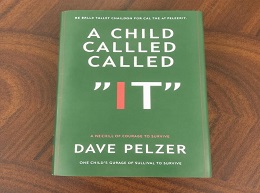Personal History

In-Depth Review of Katharine Graham's Memoir "Personal History"
"Personal History," a memoir by Katharine Graham published in 1997, provides an intimate and detailed account of her life, capturing her transformation from a privileged yet insecure woman to a powerful and influential publisher of The Washington Post. The memoir, which won the Pulitzer Prize for Biography in 1998, is not just a recount of personal experiences but also a historical document that offers insights into significant events of the 20th century. This review delves into the various facets of Graham's life as depicted in "Personal History," highlighting her personal struggles, professional achievements, and the broader context of her era.
Early Life and Privileged Upbringing
Katharine Graham, born into the affluent Meyer family, had a childhood marked by privilege and opportunity. Her father, Eugene Meyer, was a successful financier and public servant, while her mother, Agnes Meyer, was a notable intellectual and socialite. Despite this privileged background, Graham's early years were not without challenges. She often felt overshadowed by her brilliant parents and struggled with feelings of inadequacy.
Graham's candid reflections on her childhood provide a window into the complexities of growing up in a high-achieving family. For instance, she describes her mother as both inspiring and intimidating, a woman whose high standards and intellectual pursuits left young Katharine feeling insecure about her own abilities. This dynamic is poignantly captured in her memoir: “I was the only one in the family who couldn’t be classified as a high achiever, and I felt it keenly.”
Marriage and Personal Struggles
Graham's marriage to Philip Graham, a charismatic and ambitious lawyer, marked the beginning of a period of both personal fulfillment and profound struggle. Initially, her life with Philip was marked by happiness and the excitement of raising a family together. However, as Philip’s mental health began to deteriorate, their marriage faced significant challenges.
Philip Graham’s struggle with manic depression and eventual suicide in 1963 is one of the most harrowing aspects of the memoir. Katharine Graham's recounting of these years is both heart-wrenching and deeply human, illustrating her resilience in the face of personal tragedy. She writes, “I was completely unprepared for the storm that overtook our lives, leaving us devastated and me in charge of a newspaper I had no idea how to run.”
Taking the Helm at The Washington Post
Following Philip’s death, Katharine Graham was thrust into the role of publisher of The Washington Post, a position she had never envisioned for herself. Her initial insecurity and self-doubt are palpable in the memoir, but so is her determination to succeed. Graham's journey from a hesitant and inexperienced leader to a pioneering and influential publisher is one of the most inspiring aspects of her story.
One of the defining moments of her career was her decision to publish the Pentagon Papers in 1971, despite immense pressure from the government and the risk of legal consequences. This courageous decision underscored her commitment to journalistic integrity and the public’s right to know. Graham writes, “The decision to publish the Pentagon Papers was a turning point for me, a moment when I realized the true power and responsibility of the press.”
The Watergate Scandal
Another pivotal event during Graham's tenure at The Washington Post was the Watergate scandal. The newspaper's relentless investigation into the break-in at the Democratic National Committee headquarters and the subsequent cover-up by the Nixon administration solidified its reputation as a leading force in American journalism.
Graham's support for her reporters, Bob Woodward and Carl Bernstein, during the investigation exemplifies her strength as a leader. Her memoir details the intense pressure and threats she faced from the Nixon administration, yet she remained steadfast in her commitment to uncovering the truth. Graham reflects on this period with pride and humility: “The Watergate investigation was not just a triumph for the Post, but a victory for American democracy. It was a testament to the power of a free press.”
Challenges and Achievements
Graham's tenure as publisher was marked by numerous challenges and achievements. She navigated the complexities of a male-dominated industry, faced financial difficulties, and worked tirelessly to modernize and expand The Washington Post. Her leadership saw the newspaper grow from a struggling publication to a highly respected and influential institution.
Her memoir details the significant changes she implemented, from investing in new technology to expanding the newspaper’s coverage and improving its editorial standards. Graham’s strategic vision and business acumen were crucial in transforming The Washington Post into a leading national newspaper. She writes, “I was determined to ensure that the Post not only survived but thrived, adapting to the changing landscape of journalism.”
Reflections on Leadership and Legacy
In "Personal History," Graham offers profound reflections on leadership and legacy. Her journey is a testament to the power of perseverance, courage, and a commitment to principles. Despite her initial self-doubt, she emerged as a formidable leader who left an indelible mark on American journalism.
Graham’s insights into leadership are particularly valuable. She emphasizes the importance of listening, learning, and surrounding oneself with talented and dedicated people. Her ability to adapt, make tough decisions, and uphold ethical standards serves as an inspiration for leaders in any field. Graham writes, “Leadership is not about knowing all the answers, but about having the courage to ask the right questions and the humility to listen.”
Writing Style and Structure
Katharine Graham's writing style in "Personal History" is engaging, eloquent, and remarkably candid. She balances personal anecdotes with broader historical context, providing readers with a comprehensive understanding of her life and times. The memoir is structured chronologically, allowing for a seamless narrative flow that is easy to follow.
Her ability to reflect on her experiences with honesty and self-awareness adds depth and authenticity to the memoir. Whether she is recounting moments of personal vulnerability or professional triumph, Graham's voice remains sincere and compelling. This combination of personal reflection and historical narrative makes "Personal History" a captivating and enlightening read.
"Personal History" by Katharine Graham is a memoir that offers an in-depth and intimate look at the life of one of the most influential figures in American journalism. Through her candid storytelling and insightful reflections, Graham provides readers with a profound understanding of her personal and professional journey. The memoir’s exploration of themes such as resilience, leadership, and the importance of a free press resonates deeply, making it a timeless and powerful read.
For those interested in the intersections of personal experience and historical events, "Personal History" is an essential addition to their reading list. Katharine Graham's story is not just a testament to her remarkable life, but also a reflection on the enduring values of courage, integrity, and the relentless pursuit of truth.













